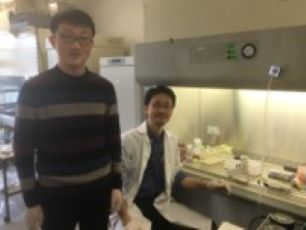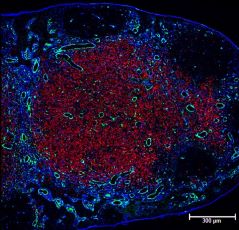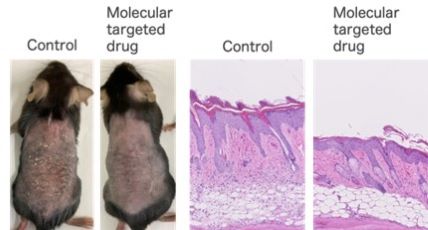- Home
- Social Action
- ★One Health Relay Report #29★
About "Immune system"

Profile #29: Dr. TAKADA Kensuke, Specially Appointed Associate Professor
Division of Vaccinology for Clinical Development,
Institute for Vaccine Research and Development (IVReD)
【Research Topics】
・Regulatory mechanisms of T cell-mediated immunological memory
・Pathogenesis and therapeutics of immune diseases
~Robust immunity for better health~
The immune system remembers previously encountered pathogens and responds quickly and strongly to reinfection. This phenomenon, called “immunological memory”, has been applied to vaccines and made significant contributions to the coexistence of humans and nature. Based on the recent pandemic of COVID-19, complicated information about vaccines is spreading. However, the mechanism of “immunological memory”, which is the basic principle of vaccines, is rarely explained in detail. It is partially due to the lack of our knowledge on memory lymphocytes which play a central role in immunological memory. We aim to contribute to the development of vaccines and immunotherapy by elucidating the development, activation, and memory formation of CD8+ T cells (killer T cells) crucial for the defense against viruses and cancer cells. Currently, we are focusing on several molecules characteristic of memory T cells and conducting research using genetically modified mice and genome editing technology.
In addition, while immune cells protect the body from infection, dysregulated activation of the immune cells can lead to various diseases. However, it is not easy to develop a treatment with limited side effects, because various molecules are intricately involved with the pathogenesis. We are also working on the development of novel therapies targeting the T cell abnormalities that can cause immune diseases.


Testing T cell function with a graduate student. The structure of a lymph node where diverse immune cells interact for the immune response.
T cells accumulate in the red area and survey for the specific antigens.

We investigated the effects of a molecular-targeted drug on a skin inflammatory disease (psoriasis) using a mouse model.
